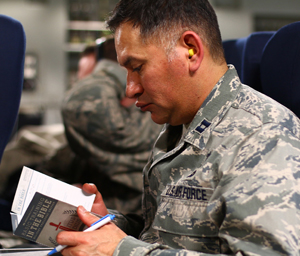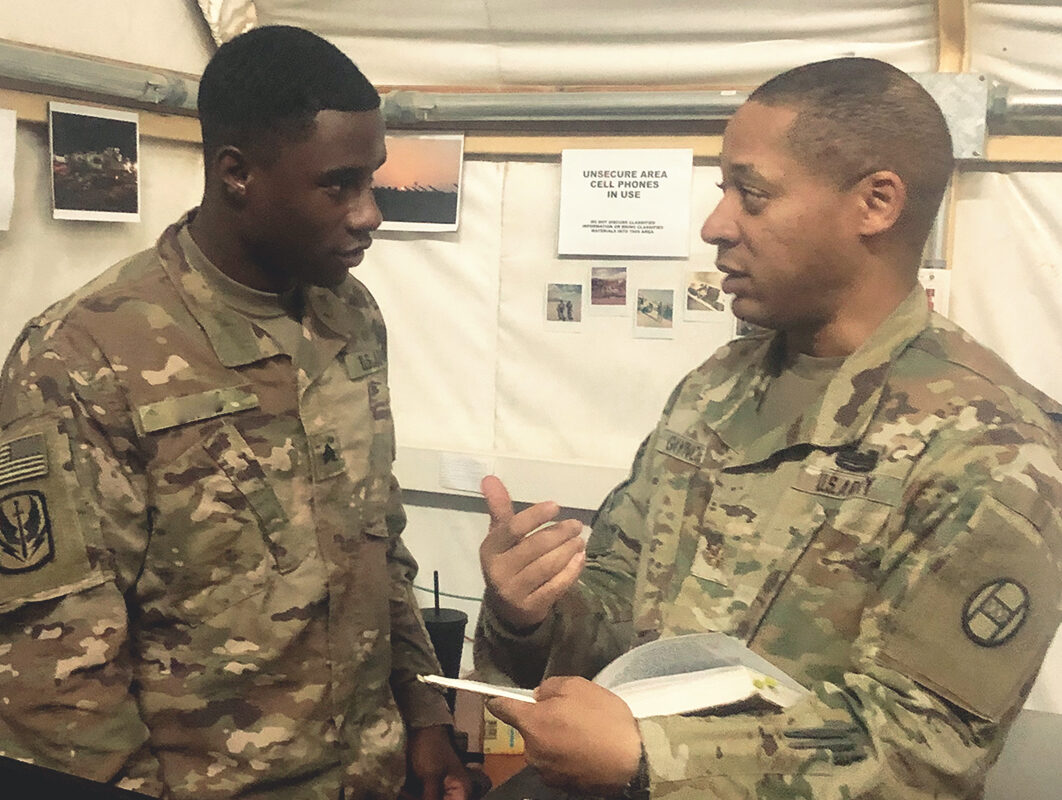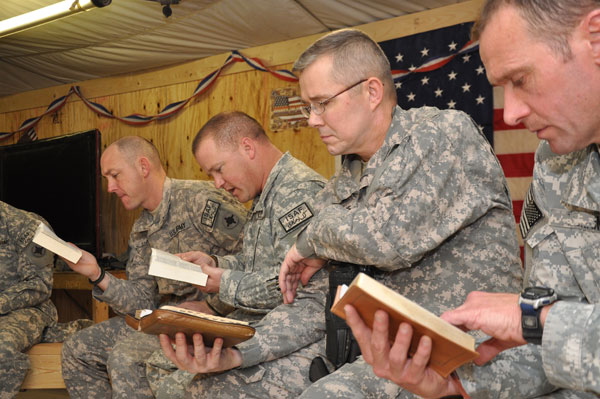Religious Rights and Responsibilities

Introduction
When challenged regarding obedience to the demands of human government, Jesus famously said, “Give to Caesar what is Caesar’s, and to God what is God’s.” Both Peter and Paul acknowledged the legitimacy of human government and strongly encouraged Christians to be good citizens. Yet, both were often arrested for disobeying the civil authorities, and when specifically challenged for their disobedience, Peter and other apostles responded that “we must obey God rather than men.” As Christ-followers we are citizens of the Kingdom of God and at the same time citizens of the United States of America. Further, as military leaders we are commissioned under oath to “support and defend the Constitution of the United States….” What are our rights, duties and responsibilities under the Constitution, and are there circumstances where we might be called upon to “obey God rather than men?”
Constitution of the United States, Amendment I: “Congress shall make no law respecting an establishment of religion, or prohibiting the free exercise thereof….”
Scripture references
Study the following biblical references and consider how they address the questions listed below. If using this outline with a Small Group, consider assigning different Scriptures to different individuals and relating them to one or more of the questions. Then scroll down the page to review our recommended resources for the topic of Rights and Responsibilities of Those in Uniform and consider how the various articles or podcasts provide further insights relating to this topic.
Matthew 22: 15-22; Romans 13:1-7; I Peter 2:13-17; Acts 5:27-29; Matthew 27: 12-14; Acts 16:35-40, 22:23-29; study Daniel chapters 1-6 as instructive examples of men of God serving faithfully under a secular government, paying particular attention to their efforts to be effective servants of a the king while still being true to their faith.
Questions
- Are there situations where a military officer-Christian might rightly disobey an order? Can you give examples, hypothetical or from your experience or that of others? How does this fit with your oath of office and the exhortations of Peter and Paul to be obedient to earthly governments?
- How do you decide when/if you should disobey an order?
- When unjustly accused and illegally tried, Jesus did nothing to resist verbally or physically. Yet, on two occasions Paul called on his rights as a Roman citizen to challenge the authorities. Was Paul wrong? Why/why not? If not, under what circumstances is it right for a military Christian to claim his/her Constitutional rights?
- What responsibilities does a military leader have to protect the religious rights of his/her subordinates? In what ways do the unique requirements of military service rightly limit ”free exercise” under the Constitution?
- In the first instance when Daniel and his friends were directed to do something that they believed violated obedience to God, they were able to suggest a creative alternative to the official responsible for the directive (see Daniel 1). Can you think of possible creative alternatives to some of the dilemmas discussed in response to question 1?
- In chapter 2 Daniel questioned an order and sought a way to get it rescinded. What can we learn from this incident?
- In chapters 3 and 6 Daniel’s friends and then Daniel himself directly disobeyed an order. Why? What were the consequences? Can we always expect similar consequences? What can we learn from these examples?
Recommended Resources
The following resources are meant to get you started in the subdomain of Religious Rights and Responsibilities of Those in Uniform.
-

Understanding Religious Rights | Episode 004
What are your rights as an American in uniform? Is it permissible for a chaplain...Read More -

Active Duty, Active Faith
You must pursue God and live out your faith while on active duty. It’s easy...Read More -

The Religious Rights of Those in Uniform
As both a member of the U.S. Armed Forces and a Christian, have you ever...Read More







